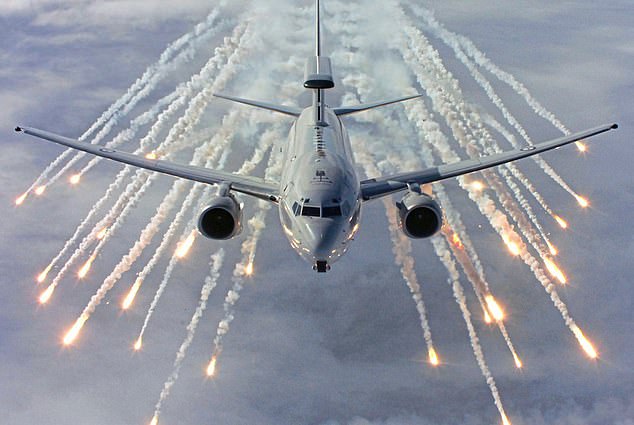Table of Contents
It has been more than two years since Russia’s invasion of Ukraine and there are few signs of an early end to the brutal war.
The world appears more dangerous than in previous decades, with tensions rising in almost every corner of the globe.
As worrying as this may seem, it puts national security at the centre of government considerations, both here and abroad. Defence spending has increased and the need for well-trained and well-equipped armed forces is widely recognised.
BAE Systems is one of the world’s largest and best-known defence companies, employing around 100,000 people to design, build and maintain sophisticated equipment to arm military personnel, provide surveillance and keep citizens safe.
The company makes fighter jets, armoured vehicles, submarines, frigates and drones, as well as a range of high-end electronic equipment to divert the enemy from their path, ensure weapons accuracy and monitor activity from a distance.
Jet power: BAE Systems supplies airborne early warning systems
BAE is a key player in the AUKUS agreement between the UK, US and Australia and in the Global Air Combat Programme, a joint project of Britain, Japan and Italy. The group has a significant business in the US and is behind major advances in cybersecurity, intelligence and even surveillance from space, helping armed forces monitor what other countries are doing on land and at sea.
At home, BAE is a key supplier to the Ministry of Defence, covering ships, submarines, aircraft and electronic security. The group has also set up three academies, in Barrow-in-Furness (Cumbria), Samlesbury, near Blackburn, and Glasgow, where it trains school leavers and current staff to acquire the skills needed to build state-of-the-art equipment.
Recent results suggest the group is doing a good job. Half-year sales rose 13 per cent to £13.4bn, profits rose 13 per cent to £1.4bn and the dividend rose 8 per cent to 12.4p, with brokers expecting an annual payout of 32p.
The outlook is also bright. Chief executive Charles Woodburn has raised his forecasts for 2024, expecting higher sales and profits than before, and the company has amassed orders of more than £74bn stretching into the next decade and beyond.
Dividends are expected to continue to rise: 34.3p is forecast for 2025, rising to almost 38p the following year. The company is also buying back its own shares, which tends to boost earnings and dividends over the long term.
Midas Verdict: Midas recommended BAE Systems in February 2022, just as Russian tanks were rolling into Ukraine. At the time, the shares were trading at £6.52. They have since nearly doubled as sales have picked up and sentiment towards defence companies has become increasingly positive. Investors who bought in 2022 may want to take some profits, but they should hold on to most of their shares as they are likely to continue to rise.
Listed in: Main market Heart: BACHELOR OF ARTS. Contact: es.baesystems.com
DIY INVESTMENT PLATFORMS

AJ Bell

AJ Bell
Easy investment and ready-to-use portfolios

Hargreaves Lansdown

Hargreaves Lansdown
Free investment ideas and fund trading

interactive investor

interactive investor
Flat rate investing from £4.99 per month

Saxo

Saxo
Get £200 back in trading commissions

Trade 212

Trade 212
Free treatment and no commissions per account
Affiliate links: If you purchase a product This is Money may earn a commission. These offers are chosen by our editorial team as we believe they are worth highlighting. This does not affect our editorial independence.


